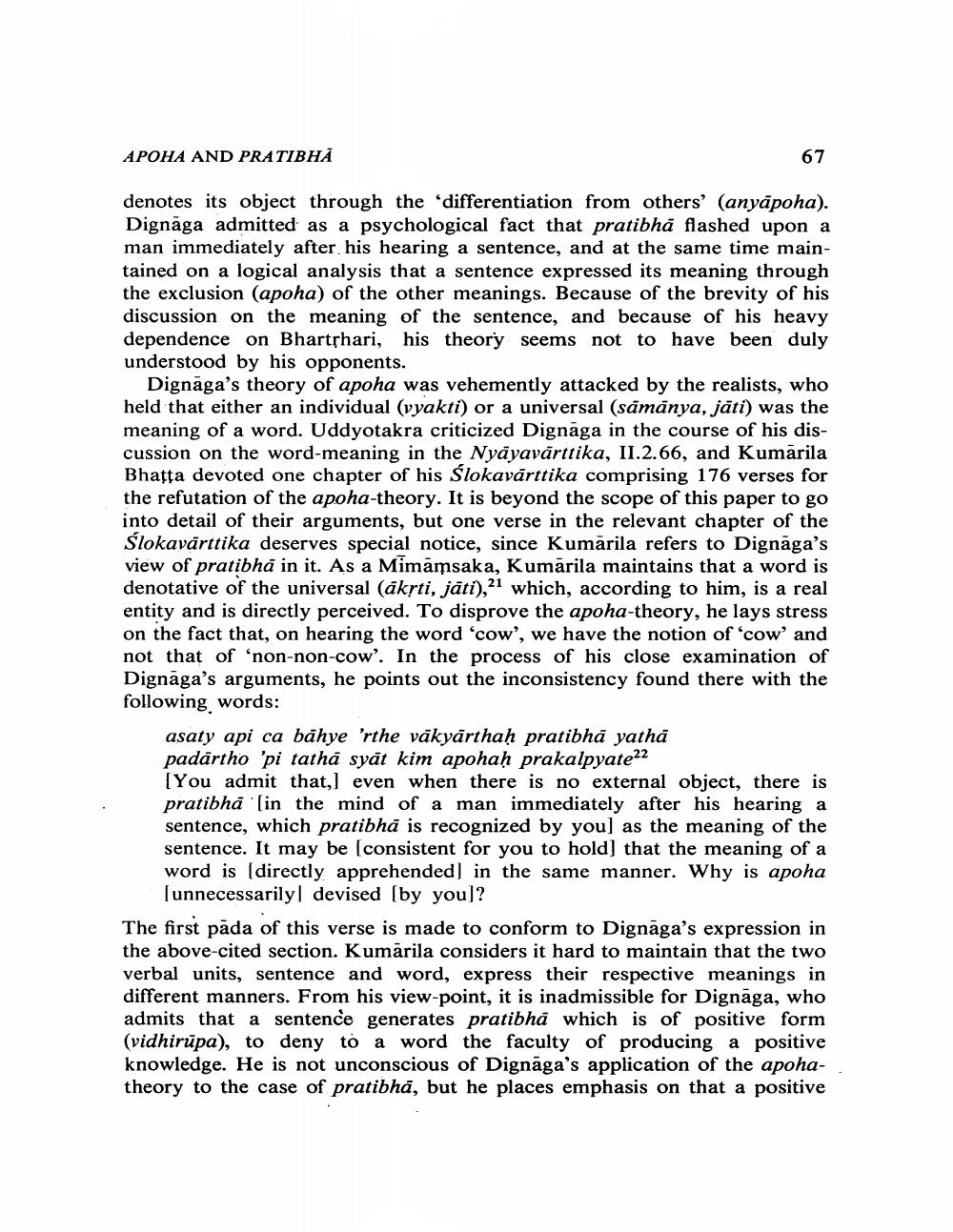Book Title: Apoha And Pratibha Author(s): Masakki Hattori Publisher: Masakki Hattori View full book textPage 7
________________ APOHA AND PRATIBHA 67 denotes its object through the differentiation from others' (anyapoha). Dignāga admitted as a psychological fact that pratibha flashed upon a man immediately after his hearing a sentence, and at the same time maintained on a logical analysis that a sentence expressed its meaning through the exclusion (apoha) of the other meanings. Because of the brevity of his discussion on the meaning of the sentence, and because of his heavy dependence on Bhartphari, his theory seems not to have been duly understood by his opponents. Dignaga's theory of apoha was vehemently attacked by the realists, who held that either an individual (vyakti) or a universal (samanya, jāti) was the meaning of a word. Uddyotakra criticized Dignaga in the course of his discussion on the word-meaning in the Nyayavarttika, II.2.66, and Kumārila Bhațța devoted one chapter of his Ślokavārttika comprising 176 verses for the refutation of the apoha-theory. It is beyond the scope of this paper to go into detail of their arguments, but one verse in the relevant chapter of the Slokavårttika deserves special notice, since Kumārila refers to Dignāga's view of pratibhā in it. As a Mimamsaka, Kumārila maintains that a word is denotative of the universal (aksti, jäti),21 which, according to him, is a real entity and is directly perceived. To disprove the apoha-theory, he lays stress on the fact that, on hearing the word 'cow', we have the notion of cow' and not that of 'non-non-cow'. In the process of his close examination of Dignaga's arguments, he points out the inconsistency found there with the following words: asaty api ca bāhye 'rthe vākyarthaḥ pratibha yatha padārtho 'pi tathā syāt kim apohaḥ prakalpyate22 [You admit that, even when there is no external object, there is pratibha (in the mind of a man immediately after his hearing a sentence, which pratibha is recognized by you) as the meaning of the sentence. It may be (consistent for you to hold) that the meaning of a word is (directly apprehended) in the same manner. Why is apoha (unnecessarilyl devised [by you)? The first pada of this verse is made to conform to Dignāga's expression in the above-cited section. Kumārila considers it hard to maintain that the two verbal units, sentence and word, express their respective meanings in different manners. From his view-point, it is inadmissible for Dignāga, who admits that a sentence generates pratibhā which is of positive form (vidhirūpa), to deny to a word the faculty of producing a positive knowledge. He is not unconscious of Dignāga's application of the apohatheory to the case of pratibhā, but he places emphasis on that a positivePage Navigation
1 ... 5 6 7 8 9 10 11 12 13
